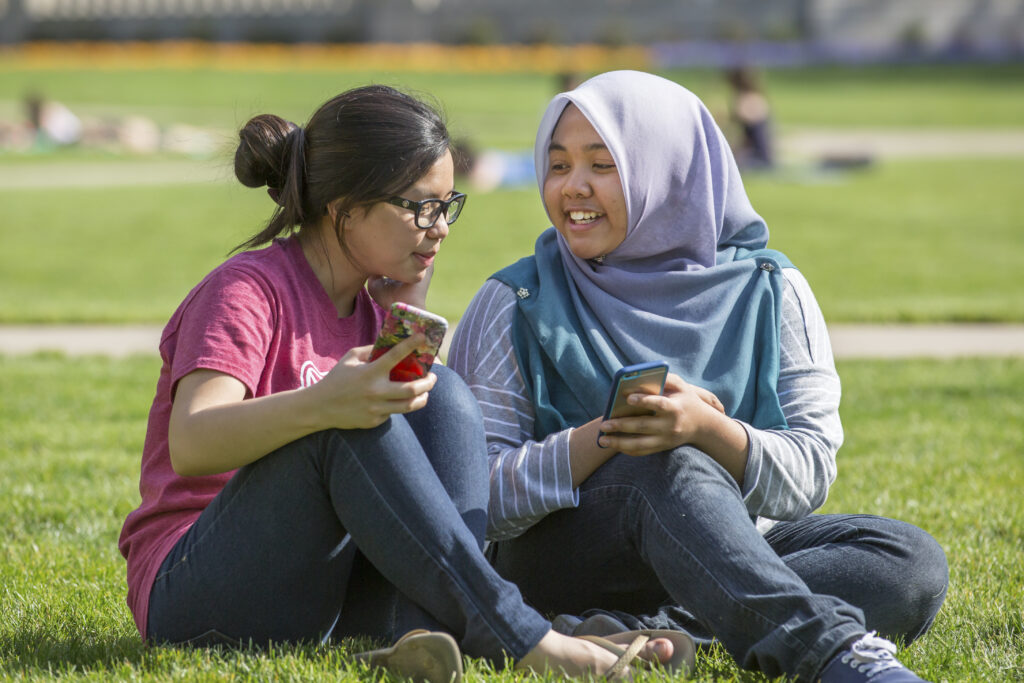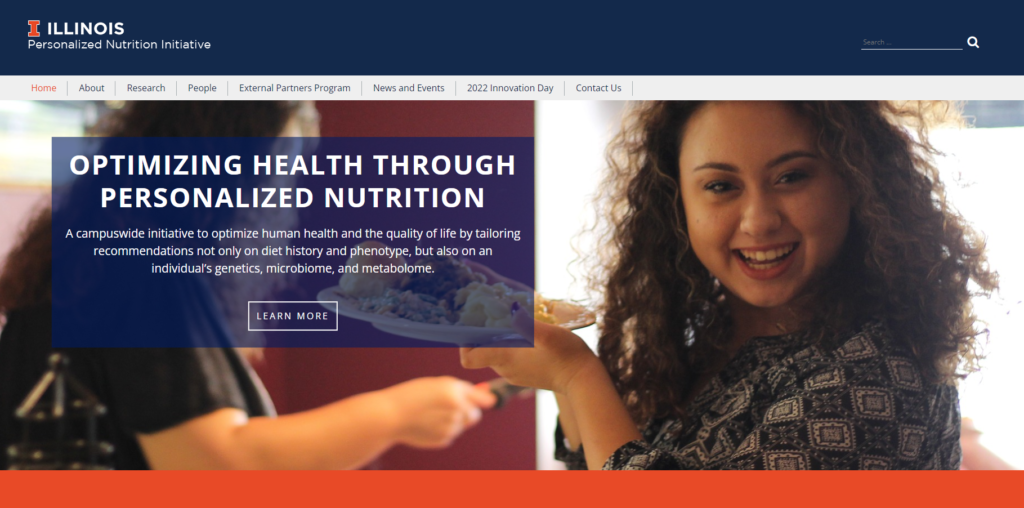The Illini Personalized Nutrition Cohort
At Rokwire, we pay attention to the research activities of our colleagues at the University of Illinois to identify future collaboration opportunities. We’re excited about the ground-breaking research being done by the Personalized Nutrition Initiative and look forward to partnering with them to explore how smart technologies can promote health and well-being. One of their upcoming research projects, the Illini Personalized Nutrition Cohort, will be utilizing smart technologies to advance the science of personalized nutrition. Learn about it below.
The promise of personalized nutrition
Have you ever noticed that you and your friends have different responses to food? It’s not just a matter of taste. You might feel sluggish after eating a bowl of pasta, while the person next to you feels just fine. As it turns out, how people respond to food varies a great deal. Both internal and external factors interact to influence how people respond to food, from their metabolism and genetics, to their environment and physical activity level. To complicate matters, responses to food change as people age.
Despite all this, health professionals overwhelmingly use a “one-size fits all” approach to nutrition. Sure, there are some general food rules that apply to everyone (yes, you should eat vegetables), but a growing body of evidence suggests that to truly optimize health and prevent disease, nutrition should be personalized.
Imagine if health professionals could make more precise recommendations about the foods that will keep individuals healthy-at 18 and at 80.
Personalized nutrition aims to give individuals the tools they need to make positive dietary changes that will help them feel their very best and lower their risk of disease.
Collecting data for personalized nutrition

The promise of personalized nutrition depends on our ability to collect a wide variety of data about people’s dietary habits, family history, genetics, microbiome, metabolism, physical activity level, mental health, sleep habits, external environment and more. All of these factors interact to influence how we respond to food.
If scientists can gather enough data from enough people over a long enough period of time, they can start to see patterns. Using machine learning and artificial intelligence, scientists can identify common internal or external factors across many individuals.
This data can then be used to develop equations that predict people’s short and long-term responses to food. By gathering and analyzing millions of data points, scientists can identify biomarkers (biological characteristics such as blood glucose levels) that show different people’s immediate and long-term responses to food. Putting these biological responses within the context of individuals’ internal biology and environment will help scientists understand what foods can keep different people healthy and lower their risk of future disease. Smart technologies can be utilized to both gather and analyze this data.
Ultimately, personalized nutrition research will help health professionals be more precise in their dietary recommendations to help people stay healthy. It can lead to innovative tools that promote dietary behavior changes, resulting in measurable health benefits.
The Illini Personalized Nutrition Cohort

There is a lot we don’t know about how different people respond to food. To date, most personalized nutrition research has been conducted on people who are overweight or at risk for disease. For people with diabetes, scientists can now collect information about an individual’s genome, metabolism, and microbiome to predict how they will respond to certain foods. Health professionals can use this information to offer more precise, personalized nutrition guidance to better manage blood sugar levels.
However, if personalized nutrition research focuses primarily on sick people, we lose the enormous opportunity to define “biomarkers of health.”
If we can personalize nutrition recommendations for healthy young people, we can promote lifelong wellness and help them avoid future disease.
This is why the University of Illinois Personalized Nutrition Initiative is designing a longitudinal personalized nutrition cohort of healthy young adults, the first of its kind.
Over 4-5 years, they will be inviting all incoming Illinois freshmen (about 8,000/year) to join a unique citizen-science initiative, the Illini Personalized Nutrition Cohort. The Personalized Nutrition Initiative is excited to partner with Illinois students for several reasons. Often, students are living away from home for the first time and have more control over their dietary health. They are developing new dietary habits that may stay with them for decades to come. Illinois researchers want to better understand how the habits they develop as young people influence their long-term health. Illinois students, especially those who have food plans, live in a more controlled environment, which makes data collection easier. Researchers can collect more accurate information about the food they are eating, their living environments, their behaviors, and more.
Researchers will follow the participants throughout their undergraduate years at Illinois and will retain them in the cohort as alumni to follow their long-term health outcomes. Over the next decade, these citizen-scientists will provide as much data as possible about how their bodies respond to food. While ensuring data security and privacy, we’ll collect biological samples (such as, blood, urine, stool, and saliva) and gather behavioral, family history, environmental, and dietary data. The goal is to collect millions of data points to identify biomarkers that predict current health and future disease risk. Students will gain important information about their own health, too.
By participating in the Illini Cohort Study, students will be helping the University of Illinois establish one of the largest databases of personalized nutrition in the world.
Their data will be used to make exciting discoveries to prevent disease and optimize health and wellness for millions of people around the world.
About the Personalized Nutrition Initiative

The Personalized Nutrition Initiative at the University of Illinois at Urbana-Champaign is uniquely positioned to advance this field due to their international leadership in human nutrition, engineering, genomics, and computer science, coupled with emerging strengths in microbial systems biology and bioengineering. The Personalized Nutrition Initiative also leverages the expertise of established institutes and centers on campus, including the Interdisciplinary Health Sciences Institute, the Center for Social and Behavioral Sciences, the NCSA, the Division of Nutritional Sciences, and several research themes in the Carl R. Woese Institute for Genomic Biology (IGB), including Genomic Security and Privacy, Microbial Metabolic Engineering and the Center for Genomic Diagnostics. Currently, the Personalized Nutrition Initiative has over 60 research affiliates from over 21 units across campus and has built a robust External Partners Program and an External Advisory Committee composed of internationally recognized experts in the field. Learn more here.


